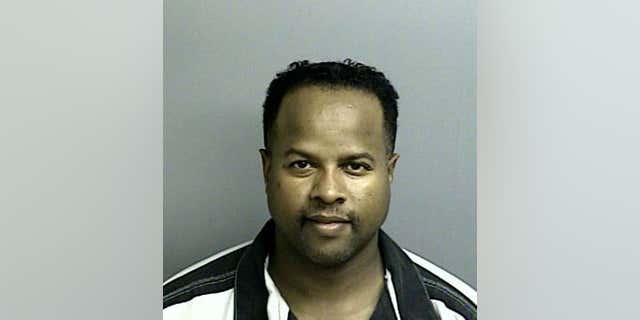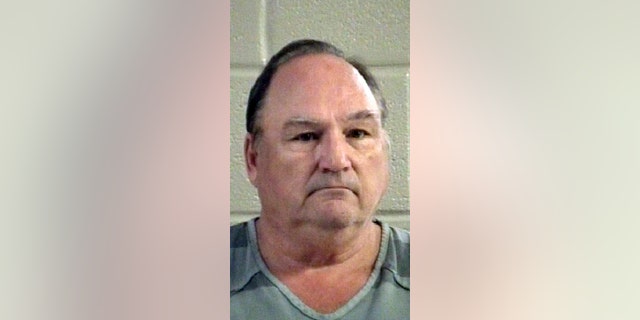Following
the downing of a Russian warplane by Syrian forces during an Israeli
strike, Moscow promises to supply the S-300 missile system to its ally;
senior foreign affairs correspondent Greg Palkot reports from London.
Hours
after President Trump announced that the U.S. will pull out of a
decades-old bilateral nuclear agreement that he said Russia had been
"violating for many years," top Russian officials lined up to hit back
in no uncertain terms, calling the president's move a "very dangerous"
provocation that would lead to "full chaos."
"We condemn the
ongoing attempts by blackmail to achieve concessions from
Russia," Russian Deputy Foreign Minister Sergei Ryabkov told a state
news agency. "This would be a very dangerous step."
Konstatin
Kosachev, who chairs the foreign affairs committee in the Federation
Council, Russia's upper house of parliament, wrote on Facebook that
Trump's decision meant "mankind is facing full chaos in the nuclear
weapons sphere."
And prominent Russian senator Aleksey Pushkov
charged that Trump's move meant "United States is bringing the world
back to the Cold War," saying the U.S.' withdrawal from the treaty would
be a "massive blow to the entire system of strategic stability in the
world." Pushkov
had previously criticized claims
that Russia meddled in the 2016 U.S. presidential election, arguing
those suggestions are part of a plan to continue a "new Cold War."
RUSSIAN NATIONAL CHARGED WITH INTERFERING IN 2018 US ELECTIONS
The
1987 Intermediate Range Nuclear Forces (INF) treaty ostensibly prevents
both the United States and Russia from possessing, producing or
test-flying any ground-launched cruise missile with a range of 300 to
3,400 miles. President Ronald Reagan and General Secretary Mikhail
Gorbachev inked the deal because of an unfolding crisis.
"We’re not going to let them violate a nuclear agreement."
— President Trump
But the Trump administration has said Russia broke the deal
by deploying Novator 9M729 land-based cruise missiles, which can exceed that range and strike NATO countries quickly. The U.S.
has previously acknowledged that Russia was violating the treaty in 2012
under the Obama administration,
and for their part, Russian officials have also suggested the U.S.
hasn't complied with the treaty by placing missiles in European bases.
After
speaking at a campaign rally in Elko, Nevada, on Saturday, Trump said
the agreement did little more than interfere with U.S. military
development.
"We’re going to terminate the agreement, and we’re
going to pull out,” Trump told reporters. "They have been violating it
for many years. I don't know why President [Barack] Obama didn't
negotiate or pull out. ... We’re not going to let them violate a nuclear
agreement and go out and do weapons, and we’re not allowed to."
ANALYSIS: PUTIN ATE TRUMP'S LUNCH AT PREVIOUS SUMMIT IN HELSINKI
NATO
Secretary General Jens Stoltenberg concurred with Trump's assessment
earlier this month. (The Defense Department concluded in February that
Russia was actively violating its arms treaty agreements, as well.)
"This
treaty abolishes a whole category of weapons and is a crucial element
of our security. Now this treaty is in danger because of Russia's
actions," Stoltenberg said. "After years of denials, Russia recently
acknowledged the existence of a new missile system, called 9M729. Russia
has not provided any credible answers on this new missile. All allies
agree that the most plausible assessment would be that Russia is in
violation of the treaty. It is therefore urgent that Russia addresses
these concerns in a substantial and transparent manner."
On
Saturday, Trump went on to say he would be open to a new, similar
agreement only if Russia and China signed on and demonstrated a sincere
commitment.
“We'll have to develop those weapons, unless Russia
comes to us, and China comes to us, and they all come to us and they say
‘let's really get smart and let's none of us develop those weapons,"
Trump said.
UK Defense Secretary Gavin Williamson forcefully
backed the U.S. in an interview with The Financial Times, saying that
Russia had made a "mockery" of the agreement.
“Our close and
long-term ally, of course, is the United States and we will be
absolutely resolute with the United States in hammering home a clear
message that Russia needs to respect the treaty obligation that it
signed," Williamson said.
GORBACHEV: TRUMP, PUTIN SHOULD FOCUS ON ARMS CONTROL
But
Sen. Rand Paul, R-Ky., who sits on the Senate Foreign Relations
Committee, called Trump's pullout a "big, big mistake" on "Fox News
Sunday," echoing comments he made Saturday on Twitter.
Trump's
announcement comes as National Security Adviser John Bolton makes his
way to Moscow on Monday and Tuesday, before a trip to countries
elsewhere in the region. Bolton is expected to discuss a range of issues
with his Russian counterparts, including Russia's deployment of a S-300
missile defense system in Syria, the recent poisoning of a former
Russian spy in Britian, and the nuclear accord.
Also expected to
headline discussions are renegotiations of the New Strategic Arms
Reduction Treaty (START), which is slated to expire in 2021. Signed
by Obama and former Russian president Dmitri Medvedev, the deal limits
the number of strategic warheads both countries are allowed to deploy.
Trump
and Putin are expected to attend another high-level summit, following
their widely-criticized meeting in Helsinki, Finland in July. Critics
charged Trump was too ready to accept Putin's denials of any meddling in
U.S. elections.
"This is the most severe crisis in nuclear arms
control since the 1980s,” Malcolm Chalmers, the deputy director general
of the Royal United Services Institute,
said in an interview.
“If the INF treaty collapses, and with the New Start treaty on
strategic arms due to expire in 2021, the world could be left without
any limits on the nuclear arsenals of nuclear states for the first time
since 1972.”




















